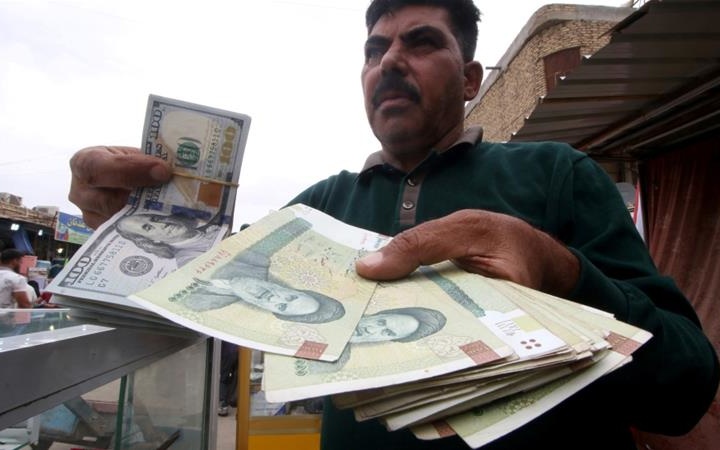Photo: Essam al-Sudani/Reuters
UPDATE, SEPT 9:
Officials have blamed the latest historic drop in Iran’s currency on moneychangers, arresting seven over “disruptive activities” in the exchange market.
General Hamid Hodavand, deputy commander of Tehran police, said the detainees set up an “exchange paper trading channel” on social media. He said they carried out transactions of 3 trillion rials ($12 million).
The rial has slipped more than 1.5% this morning to 256,000:1 v. the US dollar.
ORIGINAL ENTRY, SEPT 8: Iran’s currency has set a new historic low, falling below 250,000:1 v. the US dollar.
The rial is at 252,000:1 on Tuesday morning, after a steady decline over the past week.
Amid long-standing problems with production, investment, and trade — as well as a fall of up to 95% in oil exports — the currency plummeted from 150,000:1 in March to almost 250,000:1 in July.
An injection of almost $1 billion into the currency market brought a limited breakthrough. However, the Government promise of a “breakthrough” to cover its budget was never implemented: Parliament and judiciary heads blocked a plan for oil sales on the domestic Energy Exchange and marketing of oil bonds to the public.
See Iran Government’s “Economic Breakthrough” Blocked by Parliament and Judiciary
Last Thursday Vice President Mohammad Baqer Nobakht said the Government, which relies on oil revenue for about 1/3 of its budget, cannot sell even a “drop” because of comprehensive US sanctions imposed in November 2018.
He acknowledged, “Everyone, especially the Leader of the Islamic Revolution Ayatollah Seyyed Ali Khamenei, knows that we face a tough year ahead of us.”
Iran’s English-language State media ignore the situation this morning. Instead, they feature headlines touting a rise in petrochemical production, free insurance for poor Iranians, and power and water projects.
President Hassan Rouhani told the Cabinet’s Economic Board: “Despite all the various bottlenecks and pressures that exist in the current situation, the government is trying to prevent hardships in the country’s strategic areas.”


Iran’s sale of petrochemicals and refined oil products is unaffected by sanctions as Iran can sell them easily to anyone. By switching to exporting manufactured derivatives of crude oil, rather than the raw material, Iran is transforming its economy – albeit painfully.
Rastgoo,
Petrochemical exports and revenues are also significantly down this year: https://eaworldview.com/2020/04/iran-petrochemical-revenues-fall-30-percent/
S.
Not because of sanctions. All exports are down because of Covid-19 : that applies to every country in the world.